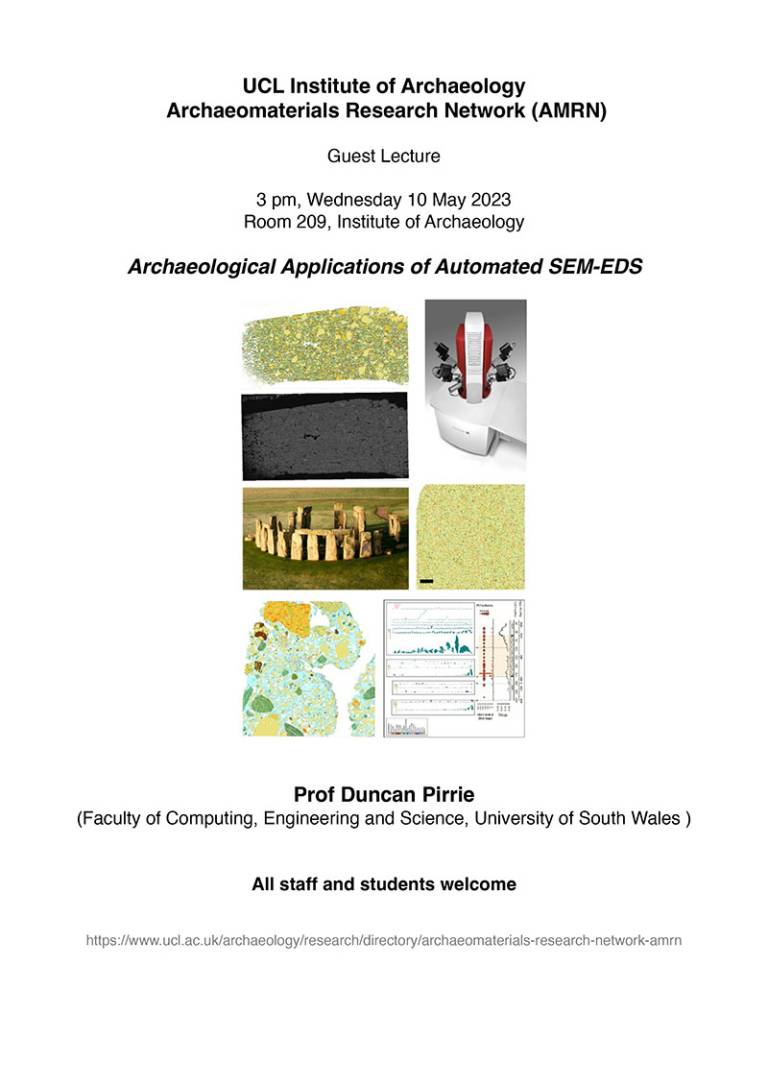Archaeological Applications of Automated SEM-EDS
10 May 2023, 3:00 pm–4:00 pm

The Archaeomaterials Research Network (AMRN) will host a talk by Duncan Pirrie (University of South Wales) at the UCL Institute of Archaeology on 10 May
This event is free.
Event Information
Open to
- UCL staff | UCL students
Availability
- Yes
Cost
- Free
Organiser
-
Dr Patrick Quinn
Location
-
209UCL Institute of Archaeology31-34 Gordon SquareLondonWC1H 0PY
Duncan Pirrie (Faculty of Computing, Engineering and Science, University of South Wales) will give a presentation entitled Archaeological Applications of Automated SEM-EDS.
Prof Pirrie's talk will focus on the automated mineralogical characterisation and interpretation of inorganic artefacts such as ceramics and lithics using the scanning electron microscope. This in-person lecture is open to all staff, students and honoraries. It will take place in Seminar Room 209 at 3pm.
The purpose of the Archaeomaterials Research Network (AMRN) is to organise focused group activities that cross-cut the wide chronological and geographic coverage of UCL archaeomaterials research.
The network's interest includes ceramics, metals, glass, slag, plaster and lithics. In keeping with the Institute's strong profile in scientific materials analysis, the network is particularly interested in archaeometric approaches such as optical microscopy, scanning electron microscopy, and geochemical analysis. However, traditional macroscopic approaches are also incorporated, as well as experimental and ethnographic perspectives. Technology is central to the study of inorganic archaeological materials, which represent synthetic artefacts manipulated by human hands. The interaction of craftspeople with naturally-occurring raw materials and their transformation into functional objects is a rich source of information on the skills, traditions, identities and beliefs of past societies. Another key theme is the movement of artefacts via processes such as trade, exchange and migration. Compositional data can be used to source or provenance archaeological materials and thus reconstruct these and other types of cultural interaction.
Given the importance of inorganic artefacts within the fields of archaeology, conservation and heritage, the network has a deliberately wide remit and a relevance to many Institute of Archaeology staff. Network members also include postdocs, PhD researchers, masters and undergraduate students. Network events include guest and in-house lectures, workshops focused on specific artefact types and approaches, as well as fieldwork and experimental reconstruction.
If you are interested in joining the AMRN or have an idea for a network event, then please contact one of the network co-ordinators:
 Close
Close

